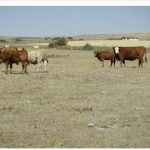KELOWNA, B.C. (Staff) – Consumers in northern China will soon be able to drink fruit juice made the Okanagan way.
Sun-Rype Products Ltd. of Kelowna has finally received a business licence to open a manufacturing plant in China. It took the company more than three years to reach its goal. It will now start building a juice production plant on property it will lease near Shanghai, said company chair Merv Geen.
“It’s a major achievement for us,” said Geen in an interview. While the venture will be owned by Sun-Rype, partners will be sought.
Read Also

Land crash warning rejected
A technical analyst believes that Saskatchewan land values could be due for a correction, but land owners and FCC say supply/demand fundamentals drive land prices – not mathematical models
“The board hasn’t given final approval because further equity than we can provide is needed,” he said. “A number of companies from various places have been identified as possible partners.”
The Okanagan juice company was established in 1946 by orchardists to provide an outlet for fruit not suitable for fresh markets. It was privatized in 1993 to raise money.
Vancouver-based Allied Strategies purchased 30 percent of Sun-Rype for $8.7 million, but most shares are held by the province’s growers and most of the board of directors are also still growers, he said.
“The Shanghai area will be the primary market and the pure juice will be made with Chinese apples,”said Geen.
He expects the first Chinese juice will be on the market before the end of this year.
“Our juice will be in Tetabrik containers for one thing. It will be pure compared to the sugar-water drinks with small portions of juice Chinese buyers have now,” he said.
“We hope to be able to have final decisions from Chinese officials to start building the plant by March, but we can’t guarantee this. This is China we are dealing with.”
Geen described this venture as just a start in a market which is bound to grow.
“Costs are very high, but the potential is also very high. For example, I don’t think our types of granola bars will be far behind.”
















